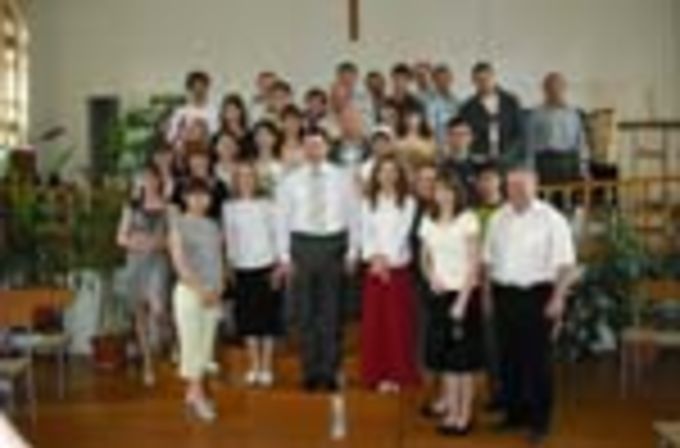Things may seem dire for Protestants in the heavily-Orthodox, south-western Russian region of Belgorod, but that is not the entire picture. It is true, as reported in the “New York Times” on 24 April, that a small Methodist congregation in Stary Oskol was denied registration.
Second Baptist “Day of Brotherhood” held in a region of Russia M o s c o w -- Things may seem dire for Protestants in the heavily-Orthodox, south-western Russian region of Belgorod, but that is not the entire picture. It is true, as reported in the “New York Times” on 24 April, that a small Methodist congregation in Stary Oskol was denied registration. Yet after an official visit by the Russian Union of Evangelical Christians-Baptists in the city of Belgorod on 24 and 25 May, Vitaly Vlasenko (Moscow), its Director for External Church Relations, reported that “spirits among Baptists were high and the feeling that much good could still be accomplished” was prevalent.
The ice had been broken on 16 November of last year when an RUECB-delegation led by Vlasenko visited government and Orthodox representatives in Belgorod following a break of roughly five years. Vlasenko is delighted that Baptists from this city bordering on Ukraine have met since then with these government and Orthodox representatives on their own initiative without special guidance from Moscow. The atmosphere at those meetings was reported to be highly constructive. Vlasenko adds: “This proves once again the importance of obtaining and maintaining contacts with local city and Orthodox officials.”
This visit by Moscow headquarters in an area of European Russia where Baptists are weakest was the second in a new, monthly series of “Days of Brotherhood”. After lecturing to a group of nearly 50 youth leaders during the day on 24 May, Vlasenko spent the evening with Baptist pastors from throughout the region. In his talk with them he stressed three strong reasons for the existence of national Baptist structures. Firstly, economics demand that educational and other projects be coordinated with central offices. Only in this fashion can unnecessarily repetitive work and expenditures be avoided. Church-building projects demand consultation with specialists. Secondly, checking local theological developments with the views held by experienced and trained theologians and pastors at headquarters can spare congregations unnecessary pain and division. Lastly, the Russian government can only take Baptists and other Protestants seriously if they do indeed act jointly and in unison.
The first “Day of Brotherhood” had been held in the relative Baptist stronghold of Bryansk on 12 April, fulfilling a promise made by Union leadership in January to leave Moscow offices and visit pastors on-location throughout Russia. Visits are to be held monthly in hopes of covering all of Russia’s 50+ Baptist regions within a five-year period. The third “Day” will take place in Kaluga south of Moscow in late June.
Department for External Church Relations, RUECB
Baptist youth gathering in Belgorod on 24 May
